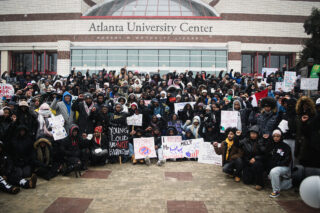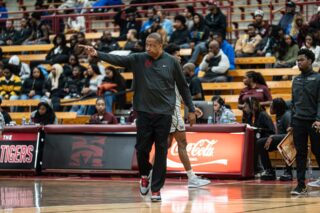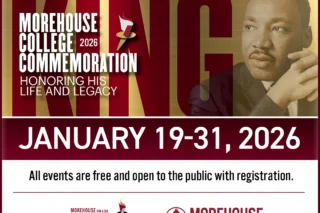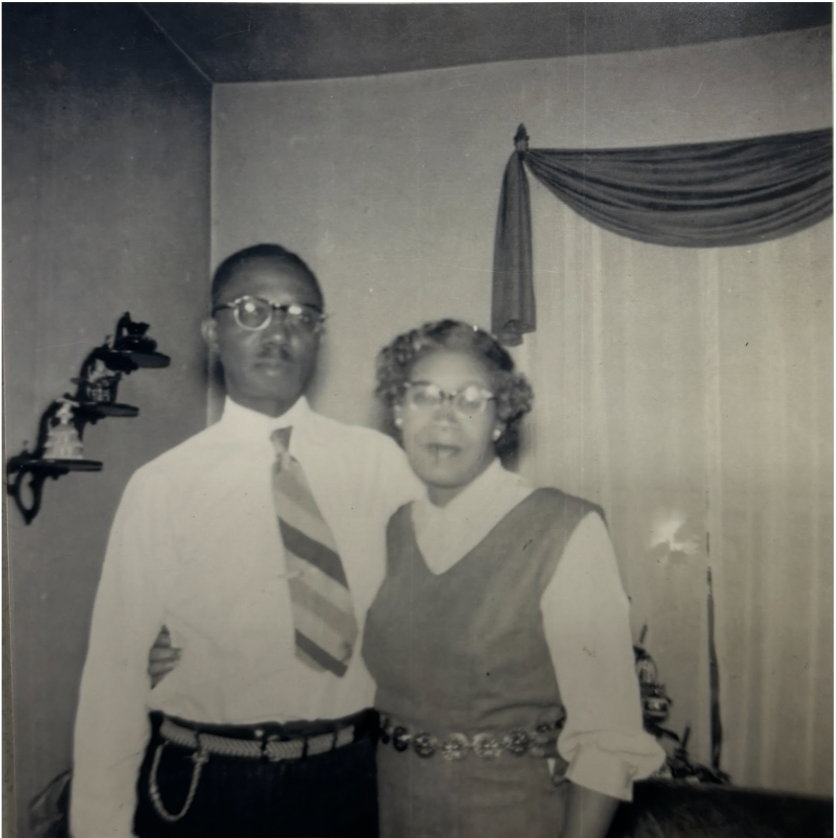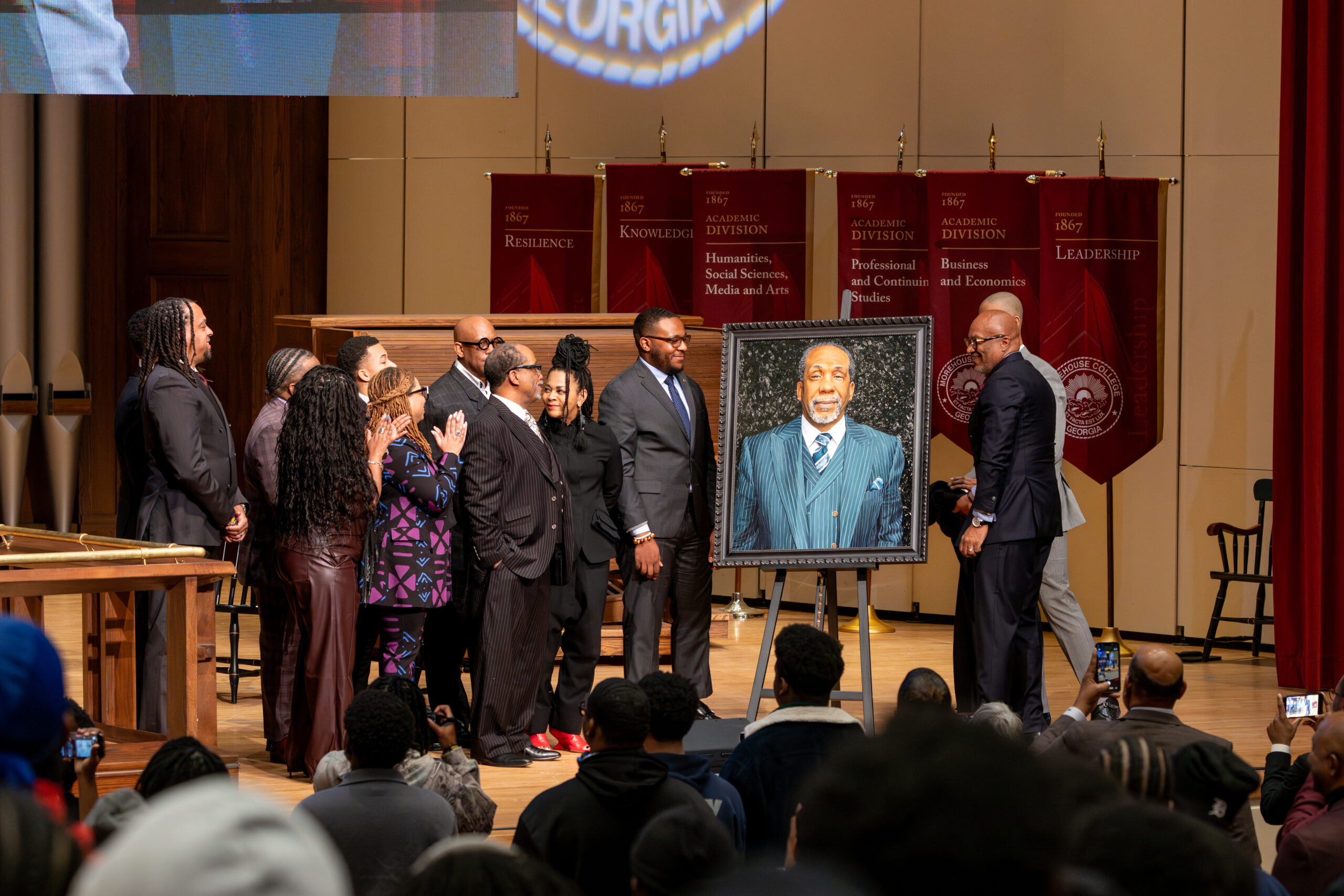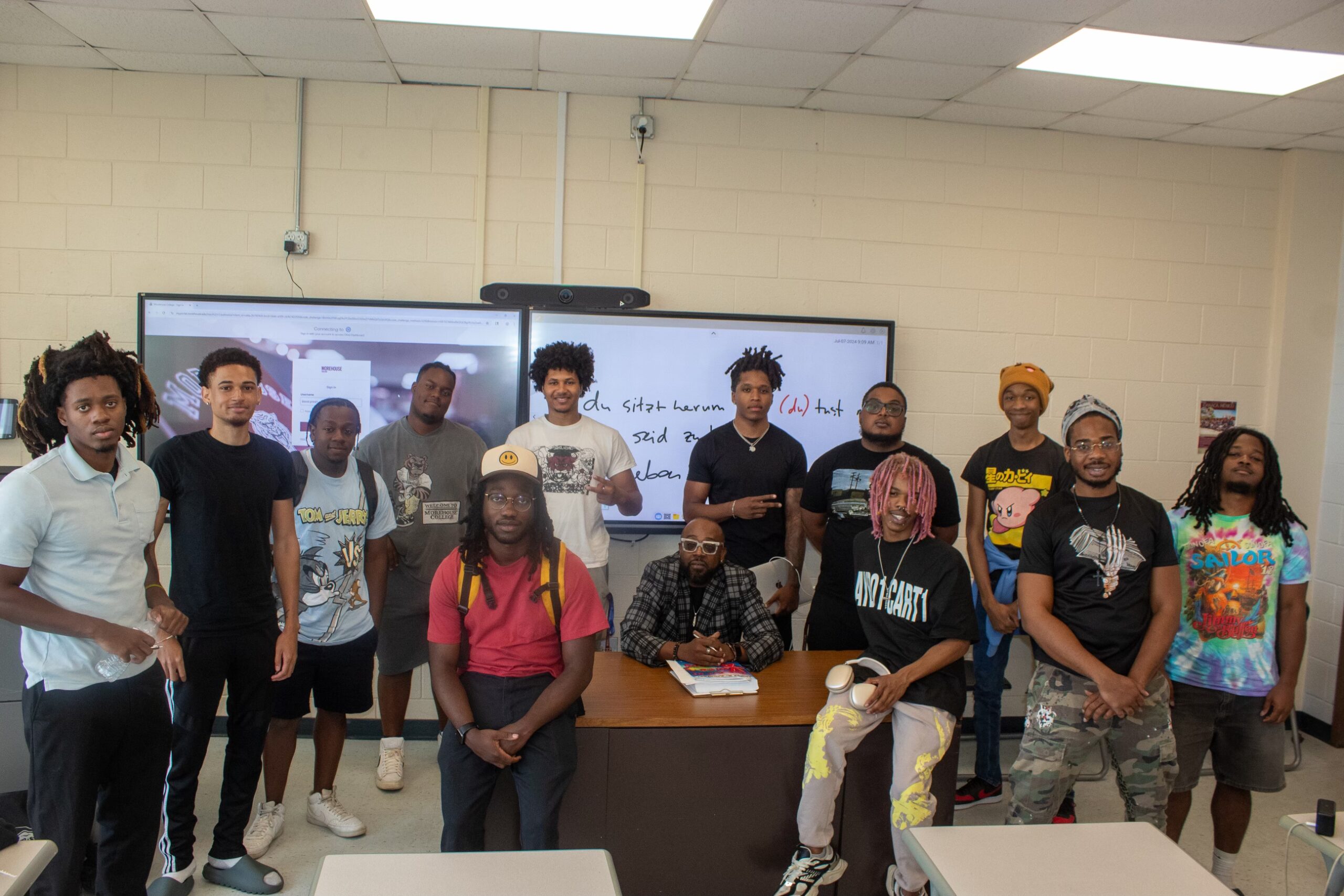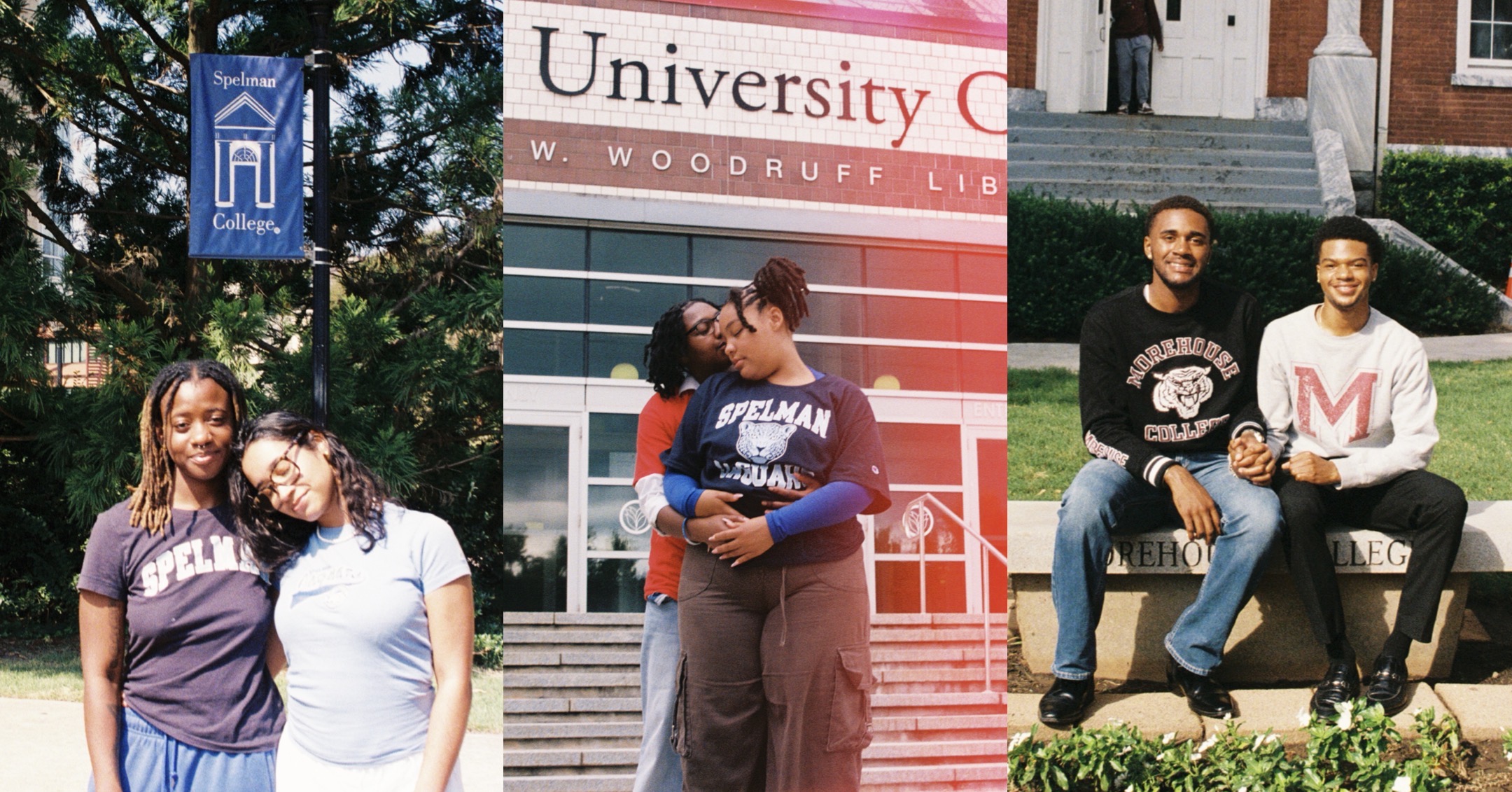Laughton and Ormah Thomas, the parents of Journalism Department Chair Ron Thomas/Photos courtesy of Professor Thomas
By Prof. Ron Thomas, Journalism Department Chair
Disclaimer: This story contains commentary surrounding struggles with suicide and mental health.
I am a suicide survivor.
Not in the traditional sense, because I have never attempted suicide. I consider myself a suicide survivor because if my father had succeeded in committing suicide when I was 12, I seriously doubt that I would have had my incredibly fulfilling career as a sportswriter nor as the head of Morehouse’s first journalism program for the last 17 years.
I also doubt that my late brother, the Reverend Laughton D. Thomas (Denny to his family), would have enjoyed more than 30 years as an Episcopal priest and 49 years as an amateur baseball umpire.
And I wonder if emotionally we would have had whatever it took to build loving relationships with our three grown children.
That is why I urge any Morehouse student or employee who is considering suicide to hold off just one more day. That may be long enough for you to find a different alternative to your pain.
The difference in our lives was that our father, Laughton F. Thomas, got extremely lucky when he survived his suicide attempt in his workplace parking lot. He was an assembly line worker at a Chevrolet plant in suburban Buffalo, where we lived in a blue-collar black neighborhood in the city.
We didn’t know at that time that Dad had learned that my mother, whose gall bladder had recently been surgically removed, had been misdiagnosed. Ormah Thomas, who came to the U.S. in 1925 as a teen-ager from St. Croix, Virgin Islands, actually had lung cancer that killed her on Aug. 4, 1962.
The fear of losing my mother had pushed Dad to attempt suicide; however, he got his extra 24 hours because a co-worker found him just before he probably would have bled to death.
When we got the call at home that dad had been hospitalized, he had been placed in an Intensive Care Unit. He gradually improved to serious condition and was eventually moved to another hospital. There, he underwent psychiatric care he may have needed his entire life.
I still remember the joy Denny and I felt the day we walked up the stairs to our tiny second-floor apartment and our father greeted us at the front door after being released from the hospital.
If Dad’s life had not been saved, my 17-year-old brother and I would have been orphans after Mom died. We had cousins in Buffalo and knew families from church, but I can’t name anyone who loved us enough to adopt us. We might have been moved to a different city, perhaps separated, maybe landed with a loving couple – who knows? But odds are slim that our new parents would have emphasized education, sports, and being polite the way our father did.
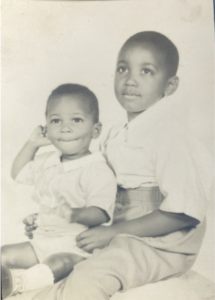
Professor Ron Thomas and his brother Laughton were known as Ronnie and Denny as children. They were about 3 and 7 years old when this picture was taken in the early 1950s.
My father had always been a model gentleman outside our apartment. Inside our home, he generally was soft-spoken and very polite; however, until he was hospitalized, there were separate times when he was irritable, jittery, demanding, suspicious or a worrywart.. As I heard him walk up the stairs on a weekday, I never knew if he would start telling funny stories from work or start grumbling to my mother about dinner not being ready or something else.
The only voice of my Mom I carry in my head is her saying with a sigh, “Now, Tommie” to try to calm him down.
Receiving psychiatric care didn’t remove my dad’s unpredictable nature; we had a very rough time after my brother went away to college. But in general, Dad became less volatile, more pleasant, and was remarkably healthy until he died of a heart attack at the age of 90. By being given “one more day,” my father ended up living for another 27 years.
Before I permanently moved away from Buffalo at 22, my father gave me three pieces of advice that I will forever be grateful for.
- I was an excellent high school student, and my Dad had retired from Chevy before I applied for college. Trying to save him money, I told him I was going to apply to a military academy because I felt sure I could get a scholarship. He told me not to do it.
“You don’t even like to wear a tie to church,” he said. “There’s no reason for you to apply to a college where you have to wear a uniform every day.”
- I ended up at non-military University of Rochester, and before my senior year began in 1970, I needed a car so I could drive to Washington, D.C., with one of my best friends, Bill Staton. Both of us had internships with black Congressmen: me with John Conyers and Billy with Louis Stokes.
Dad and I visited several used car lots, and I considered buying a plain-looking, slow-moving car like a Nash Rambler or Mercury Comet to save money. Then one day my dad walked into our apartment and said, “Take a ride with me.”
He didn’t tell me why as we drove to a used car lot in The Village of Depew. Then he walked me over to a gorgeous, 1965 Plymouth Barracuda muscle car that was all red, inside and out, and said, “That’s the car a young man should buy.” So, I did, for all $950 I had saved up – and I loved it until Rochester’s winter weather rusted it out.
- My father’s third wise advice came after I graduated from Rochester with a Political Science degree and no job or career prospects. I drove the 70 miles back to Buffalo and futilely spent the summer looking for work. Since Dad was living alone, I told him I would stay home to keep him company.
But he said, “There’s no future in Buffalo for a young man. You should go back to Rochester and hang out with your friends.”
So, I did, lived in a house with seven other people, worked in my college library, played a lot of basketball and decided to become a sportswriter because writing English papers was easy, and I loved sports. After getting a master’s in Journalism at Northwestern, the Rochester Times-Union hired me to cover high school basketball and football – and my career was born.
Those are three wonderful memories my dad gave me by surviving his suicide attempt. That’s why I urge anybody who is tempted by suicide to give yourself “just one more day” to find a reason to live or a person to live for.
Copy Edited by Editor-in-Chief, Colin Royal
Morehouse Counseling Services is available to anyone needing support during this challenging time. To schedule an appointment, please call (470) 639-0231 or visit the Student Mental Health Center on the lower level of Brazeal House. Faculty and staff needing assistance may contact the Cigna Behavioral Hotline at (866) 912-3339 or the Life Assistance Program at (800) 538-3543. If you are in crisis, call the National Suicide Hotline by dialing 988.

